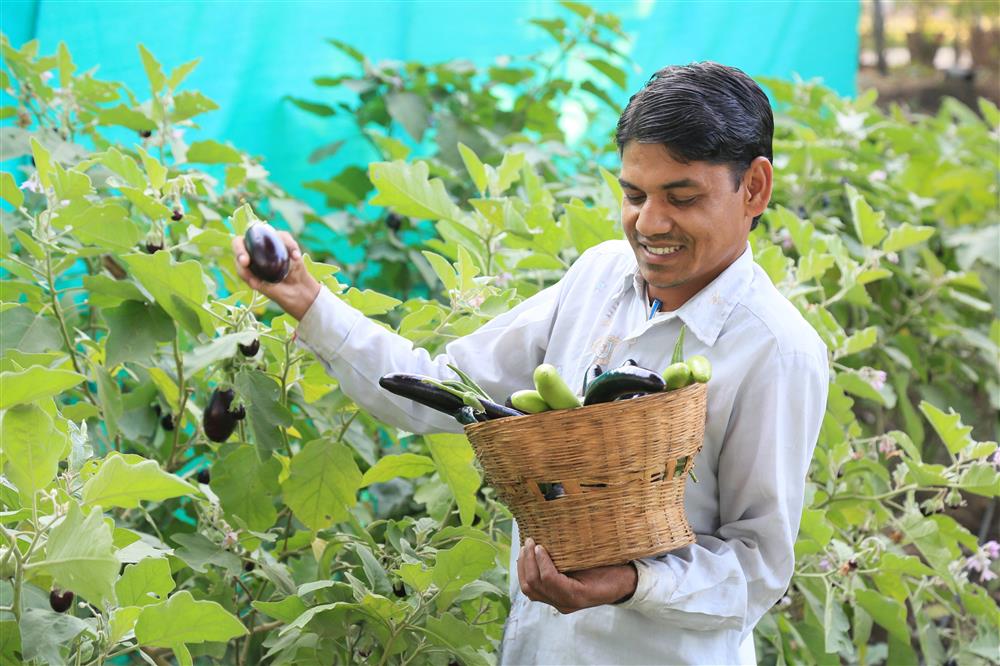Training volunteers to teach entrepreneurship development
- Solution
- Ujjawal – Disability Inclusive Livelihood Initiative
- Organization
- Naman Seva Samiti
- Country of Implementation
- India
- Region
- Asia & Pacific
- Subregion
- South Asia
- City
- Betul, Madhya Pradesh
- Start Year
- 2015
- First published
- 13.01.2021

Solution details
“I started an inclusive organic farming business, which is helping me build a future for my family.” Dinesh Chadhokar, Ujjawal beneficiary
Naman Seva Samiti is an NGO focusing on supporting socially excluded groups in the Indian state of Madhya Pradesh. Its ‘Ujjawal’ (light) project promotes disability-inclusive income generation programmes so that people with disabilities can become economically independent. Volunteers in rural communities are identified and trained to lead community-driven income-generating initiatives. From 2015 to 2020, nearly 26,000 people had received support, 7,000 of whom were people with disabilities.
Problems Targeted
Persons with disabilities living in rural communities face significant financial difficulties.
Solution, Innovation and Impact
Ujjawal is a structured, multi-step process. First, Naman Seva Samiti undertakes a survey and stakeholder mapping in a village to identify barriers and local resources. It then develops an action plan outlining possible income-generating activities. Potential local volunteers (known as Naman Prerak) are identified to drive the project. Volunteers are trained in leadership skills, developing business plans, and in practical skills, such as farming and gardening, so they can also train others. Training materials are available in Braille and sign language. The physical training centres follow Universal Design guidelines, and 431 volunteers with disabilities have been trained to date. Volunteers lead Self-Help Groups (SHGs) whereby the community collectively decides the activities it wants to undertake, receives funding through Ujjawal. SHGs can undertake agricultural activities, developing farmer producer companies to sell goods; and/or they can set up a community credit cooperative to provide giving loans to entrepreneurs and small businesses. The practice has helped raise the average monthly income for persons with disabilities from US$12 to US$257 in three years.
Funding, Outlook and Transferability
Ujjawal is funded by CBM International (US$0.92 million), government institutions (US$0.11 million), funding from Naman Seva Samiti itself, and community fundraising (US$0.58 million). The practice has been replicated and scaled up in two Indian states by Naman Seva Samiti. Twelve NGOs from five other states have also adapted this practice. Naman Seva Samiti has become a technical assistance organization that helps NGOs in Bangladesh, India, Nepal, and Sri Lanka to adapt this practice.
Media
Pictures
Videos
Downloads
Related information
- Connections
- 2
-
Organization
- People